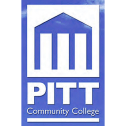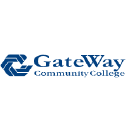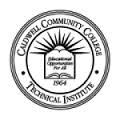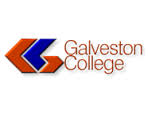What do they do?
Prepare, administer, and measure radioactive isotopes in therapeutic, diagnostic, and tracer studies using a variety of radioisotope equipment. Prepare stock solutions of radioactive materials and calculate doses to be administered by radiologists. Subject patients to radiation. Execute blood volume, red cell survival, and fat absorption studies following standard laboratory techniques.
Also known as:
Certified Nuclear Medicine Technologist (CNMT), Nuclear Cardiology Technologist, Nuclear Medicine PET-CT Technologist (Nuclear Medicine Positron Emission Tomography - Computed Tomography Technologist), Nuclear Medicine Technologist (NMT), Radiation Safety Officer, Registered Nuclear Medicine Technologist, Staff Nuclear Medicine Technologist
-
0%
Change
Ranks #50 in job growth rate40Job Openings
Ranks #9 in net job growth
Looking for colleges that offer a specific major? Use the College Match Tool to find your best-matched schools and discover your estimated Net Price!
- Bachelor's degree (51%)
- Master's degree (18%)
- Associate's degree (17%)
- Some college, no degree (6%)
- Doctorate or Professional Degree (3%)
- Less than high school diploma (3%)
- High school diploma equivalent (3%)
People in this career often have these skills:
- Critical Thinking - Using logic and reasoning to identify the strengths and weaknesses of alternative solutions, conclusions, or approaches to problems.
- Active Listening - Giving full attention to what other people are saying, taking time to understand the points being made, asking questions as appropriate, and not interrupting at inappropriate times.
- Speaking - Talking to others to convey information effectively.
- Reading Comprehension - Understanding written sentences and paragraphs in work-related documents.
- Writing - Communicating effectively in writing as appropriate for the needs of the audience.
- Monitoring - Monitoring/Assessing performance of yourself, other individuals, or organizations to make improvements or take corrective action.
- Social Perceptiveness - Being aware of others' reactions and understanding why they react as they do.
People in this career often know a lot about:
- Customer and Personal Service - Knowledge of principles and processes for providing customer and personal services. This includes customer needs assessment, meeting quality standards for services, and evaluation of customer satisfaction.
- Biology - Knowledge of plant and animal organisms, their tissues, cells, functions, interdependencies, and interactions with each other and the environment.
- English Language - Knowledge of the structure and content of the English language including the meaning and spelling of words, rules of composition, and grammar.
- Physics - Knowledge and prediction of physical principles, laws, their interrelationships, and applications to understanding fluid, material, and atmospheric dynamics, and mechanical, electrical, atomic and sub-atomic structures and processes.
- Medicine and Dentistry - Knowledge of the information and techniques needed to diagnose and treat human injuries, diseases, and deformities. This includes symptoms, treatment alternatives, drug properties and interactions, and preventive health-care measures.
- Chemistry - Knowledge of the chemical composition, structure, and properties of substances and of the chemical processes and transformations that they undergo. This includes uses of chemicals and their interactions, danger signs, production techniques, and disposal methods.
- Computers and Electronics - Knowledge of circuit boards, processors, chips, electronic equipment, and computer hardware and software, including applications and programming.
- Mathematics - Knowledge of arithmetic, algebra, geometry, calculus, statistics, and their applications.
- Public Safety and Security - Knowledge of relevant equipment, policies, procedures, and strategies to promote effective local, state, or national security operations for the protection of people, data, property, and institutions.
People in this career often have talent in:
- Oral Comprehension - The ability to listen to and understand information and ideas presented through spoken words and sentences.
- Oral Expression - The ability to communicate information and ideas in speaking so others will understand.
- Problem Sensitivity - The ability to tell when something is wrong or is likely to go wrong. It does not involve solving the problem, only recognizing that there is a problem.
- Near Vision - The ability to see details at close range (within a few feet of the observer).
- Written Comprehension - The ability to read and understand information and ideas presented in writing.
- Information Ordering - The ability to arrange things or actions in a certain order or pattern according to a specific rule or set of rules (e.g., patterns of numbers, letters, words, pictures, mathematical operations).
- Speech Recognition - The ability to identify and understand the speech of another person.
- Written Expression - The ability to communicate information and ideas in writing so others will understand.
- Deductive Reasoning - The ability to apply general rules to specific problems to produce answers that make sense.
- Inductive Reasoning - The ability to combine pieces of information to form general rules or conclusions (includes finding a relationship among seemingly unrelated events).
- Speech Clarity - The ability to speak clearly so others can understand you.
People in this career often do these activities:
- Administer medical substances for imaging or other procedures.
- Create advanced digital images of patients using computer imaging systems.
- Operate diagnostic imaging equipment.
- Process x-rays or other medical images.
- Calculate numerical data for medical activities.
- Record patient medical histories.
- Process healthcare paperwork.
- Follow protocols or regulations for healthcare activities.
- Prepare medications or medical solutions.
- Explain medical procedures or test results to patients or family members.
- Examine medical instruments or equipment to ensure proper operation.
- Monitor the handling of hazardous materials or medical wastes.
- Gather medical information from patient histories.
- Maintain medical laboratory equipment.
- Adjust settings or positions of medical equipment.
- Position patients for treatment or examination.
- Prepare biological specimens for laboratory analysis.
- Operate laboratory equipment to analyze medical samples.
- Train medical providers.
- Supervise patient care personnel.
- Determine protocols for medical procedures.
This page includes data from:

 Occupation statistics: USDOL U.S. Bureau of Labor Statistics Occupational Employment Statistics
Occupation statistics: USDOL U.S. Bureau of Labor Statistics Occupational Employment Statistics
 Videos: CareerOneStop, USDOL/ETA and the Minnesota Department of Employment & Economic Development
Videos: CareerOneStop, USDOL/ETA and the Minnesota Department of Employment & Economic Development









